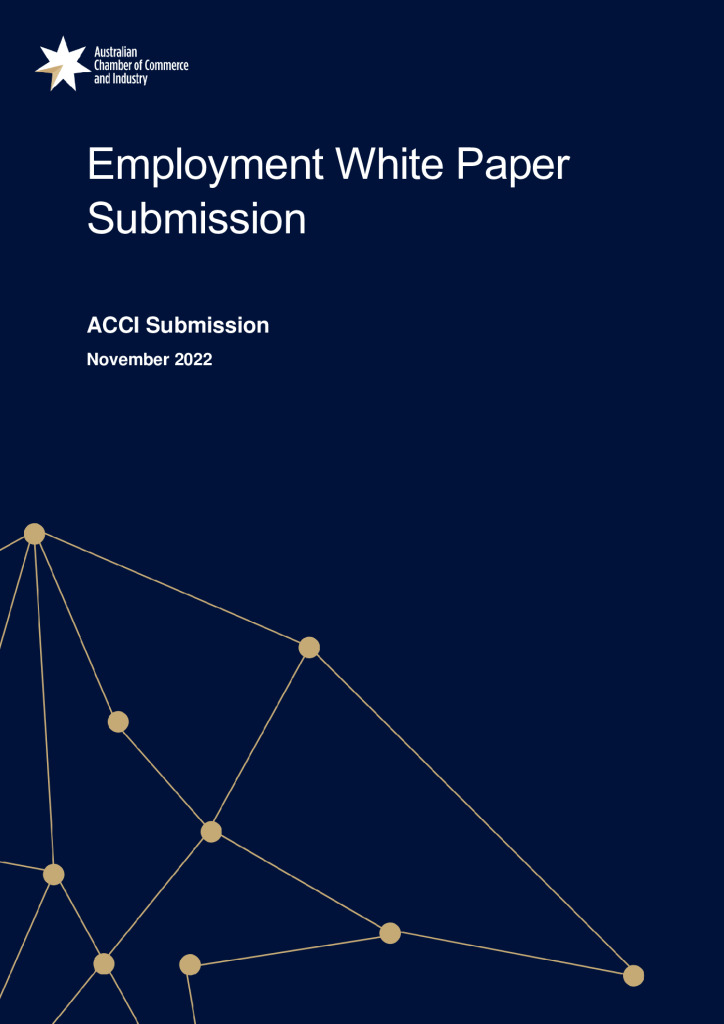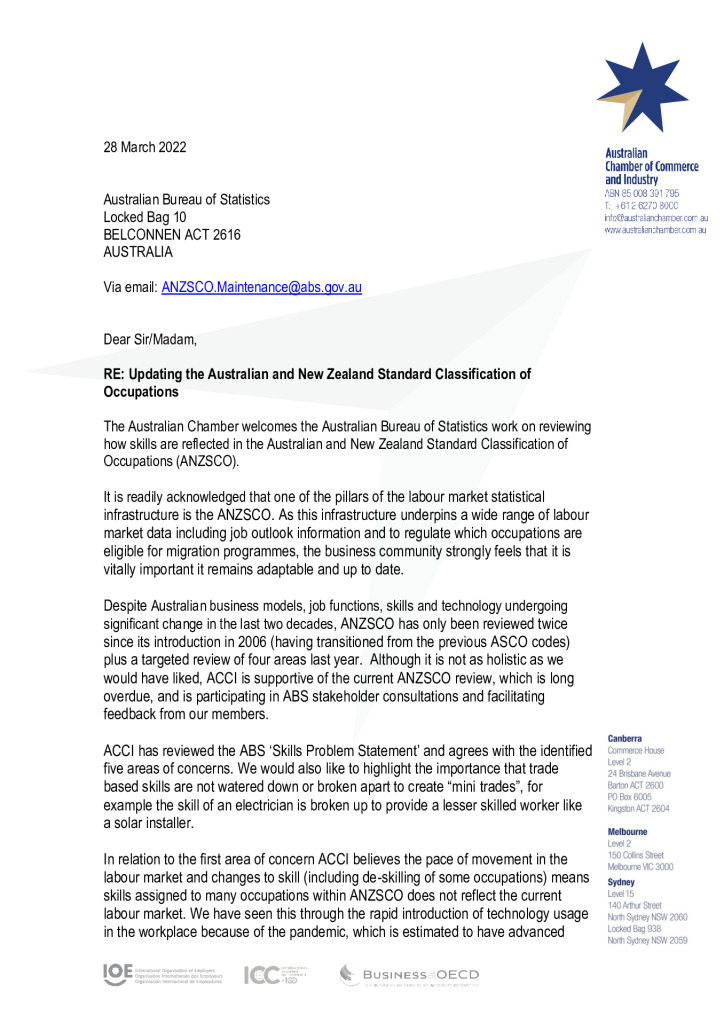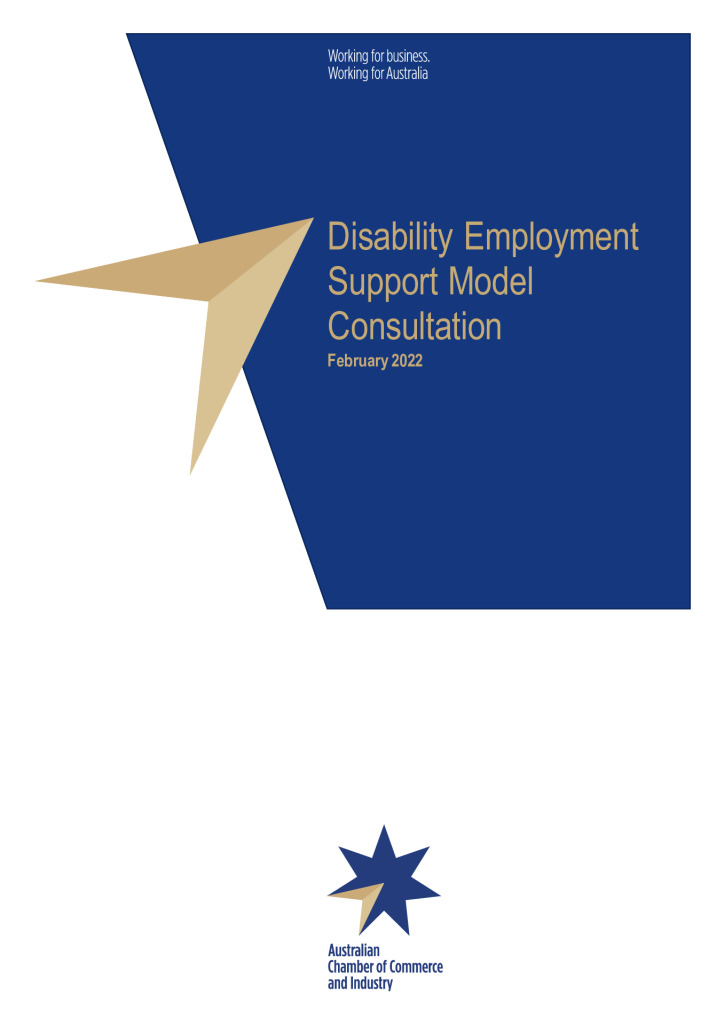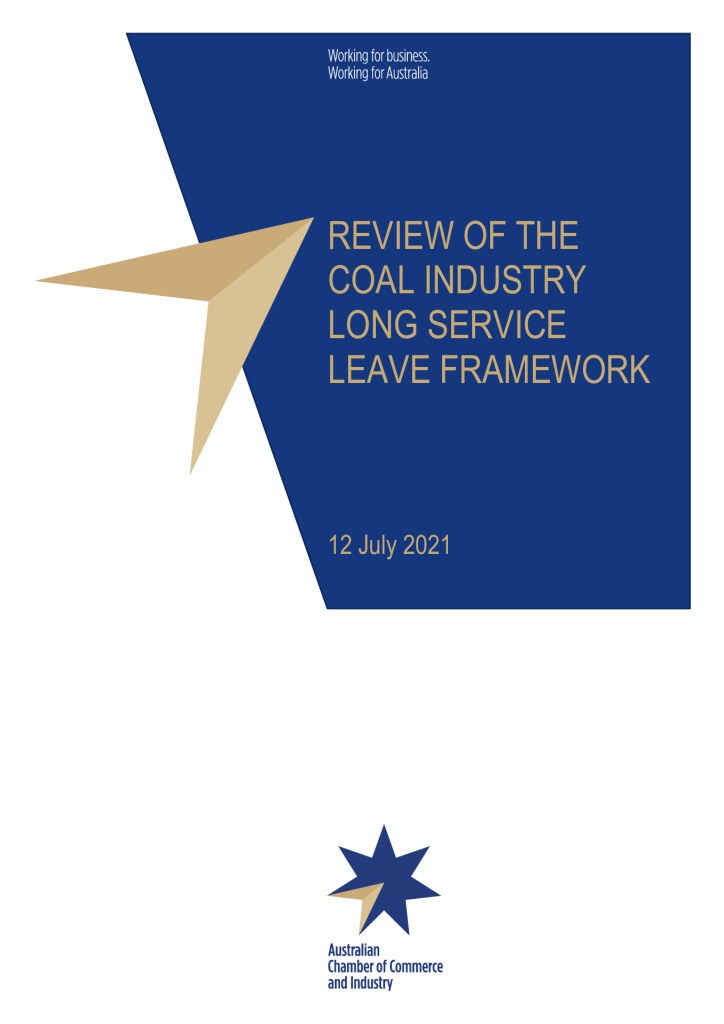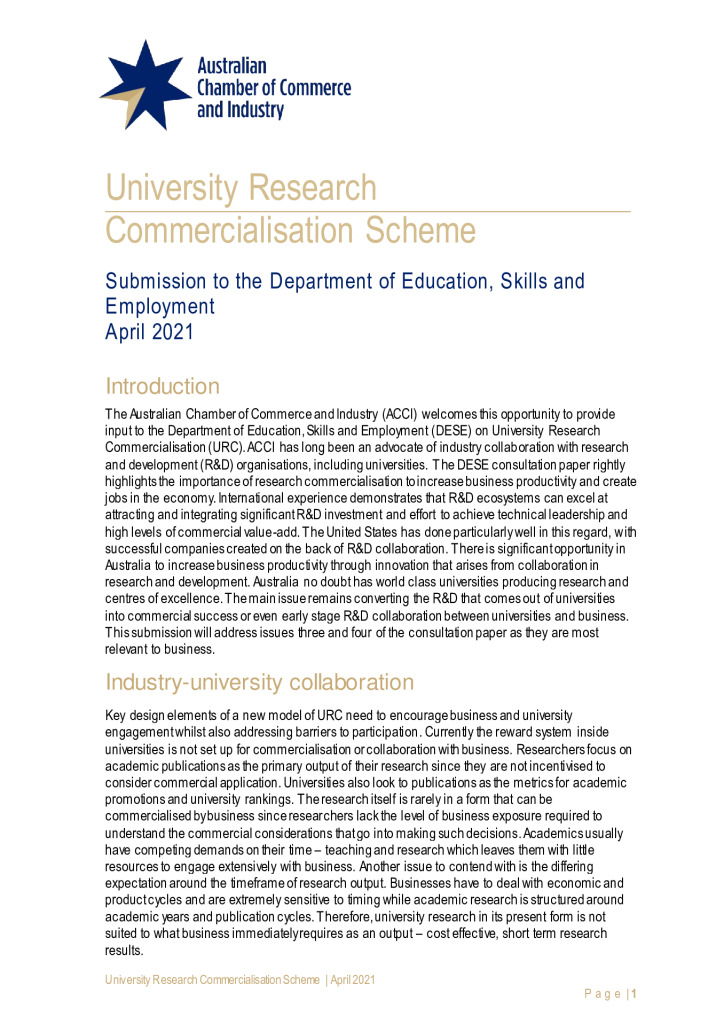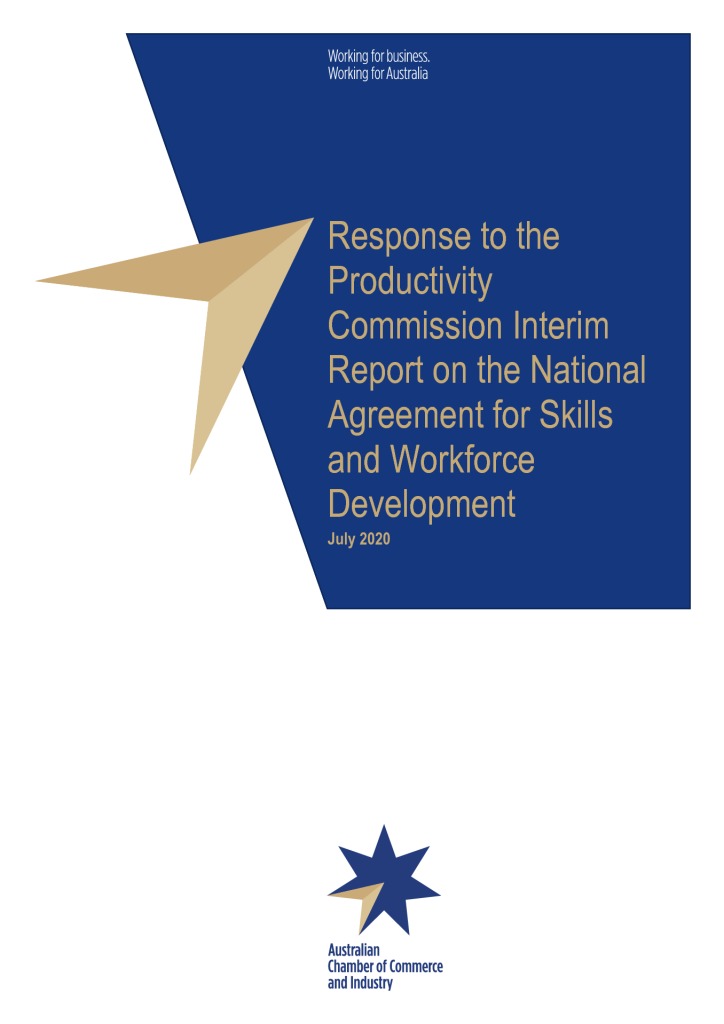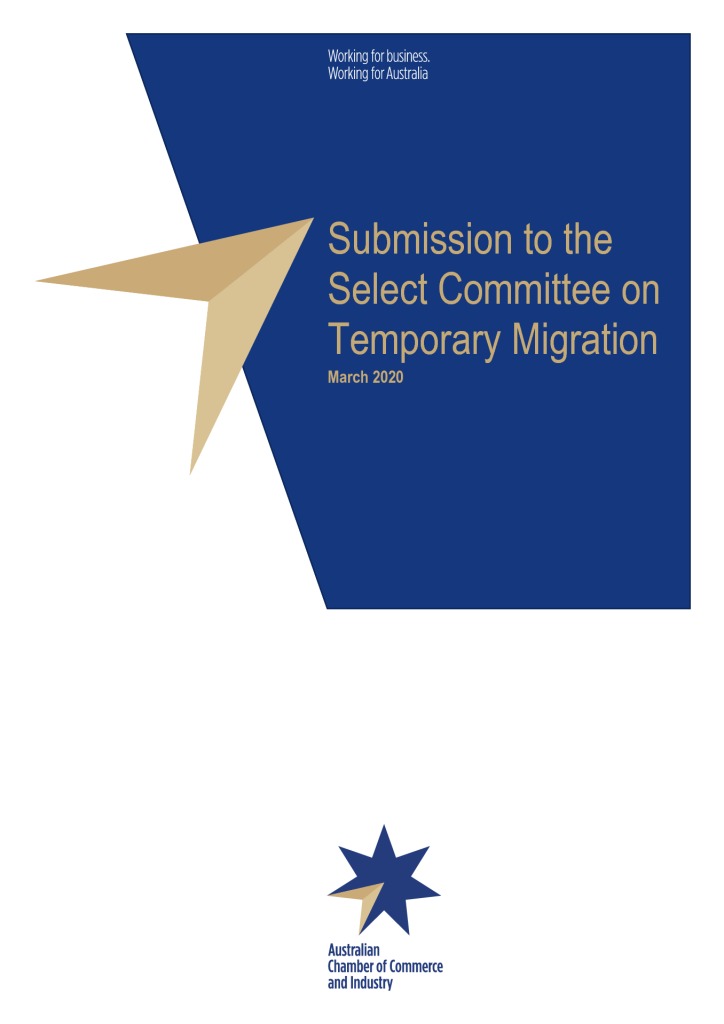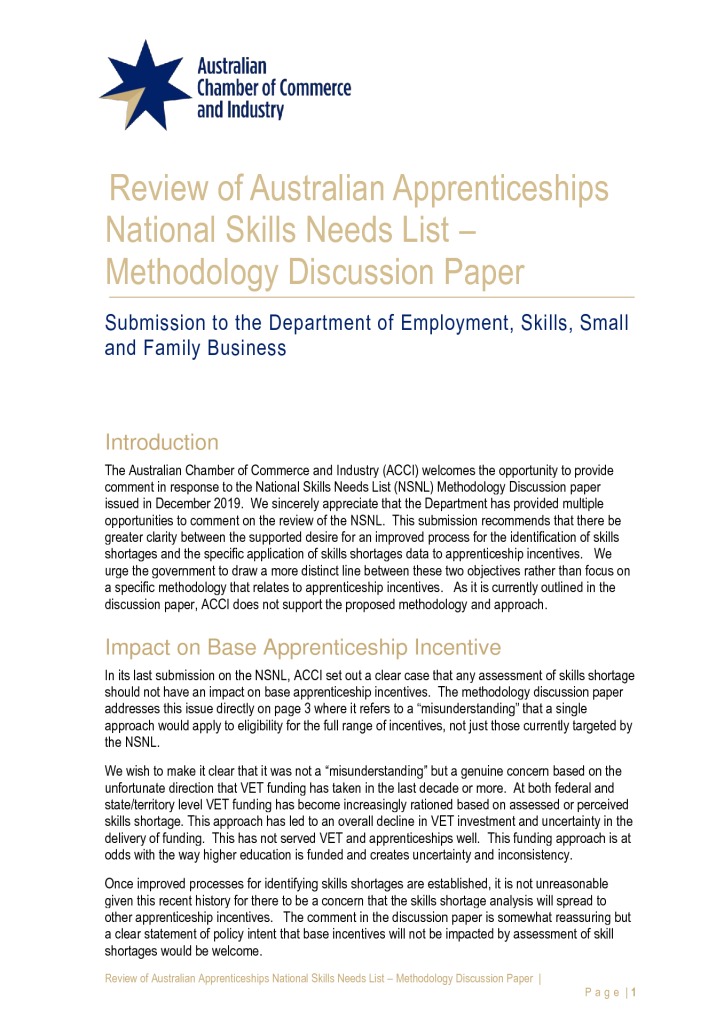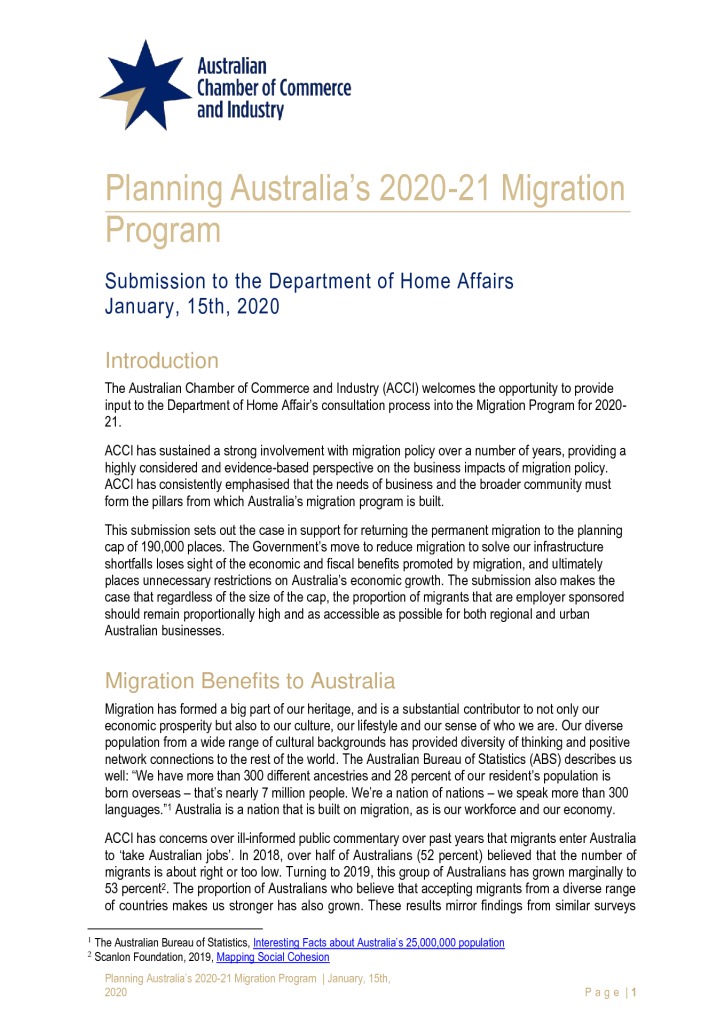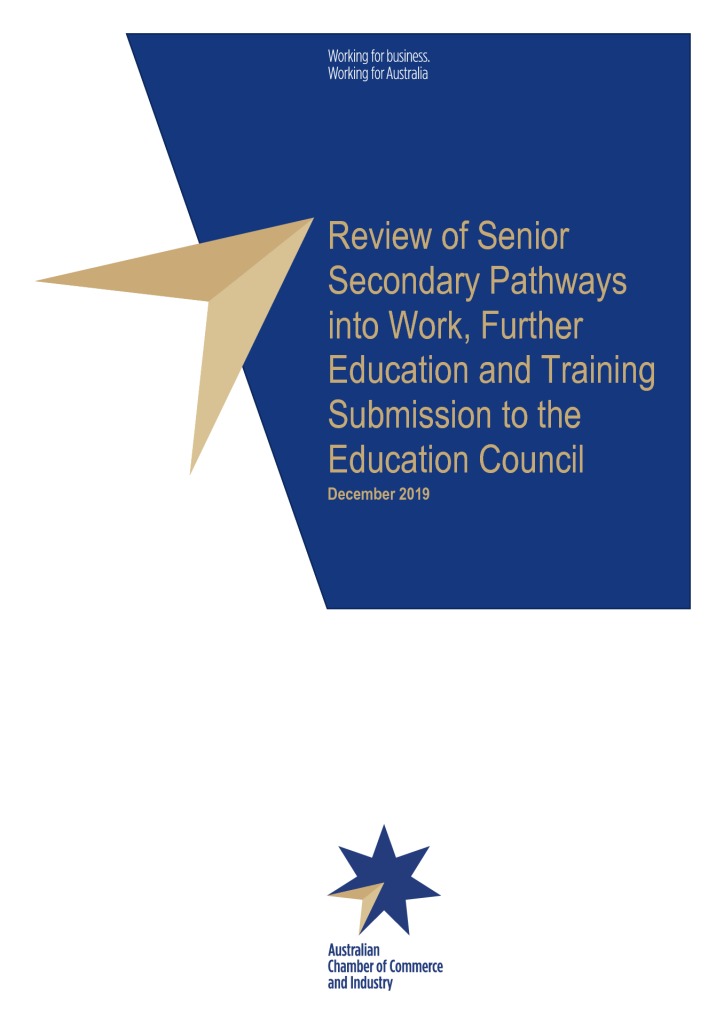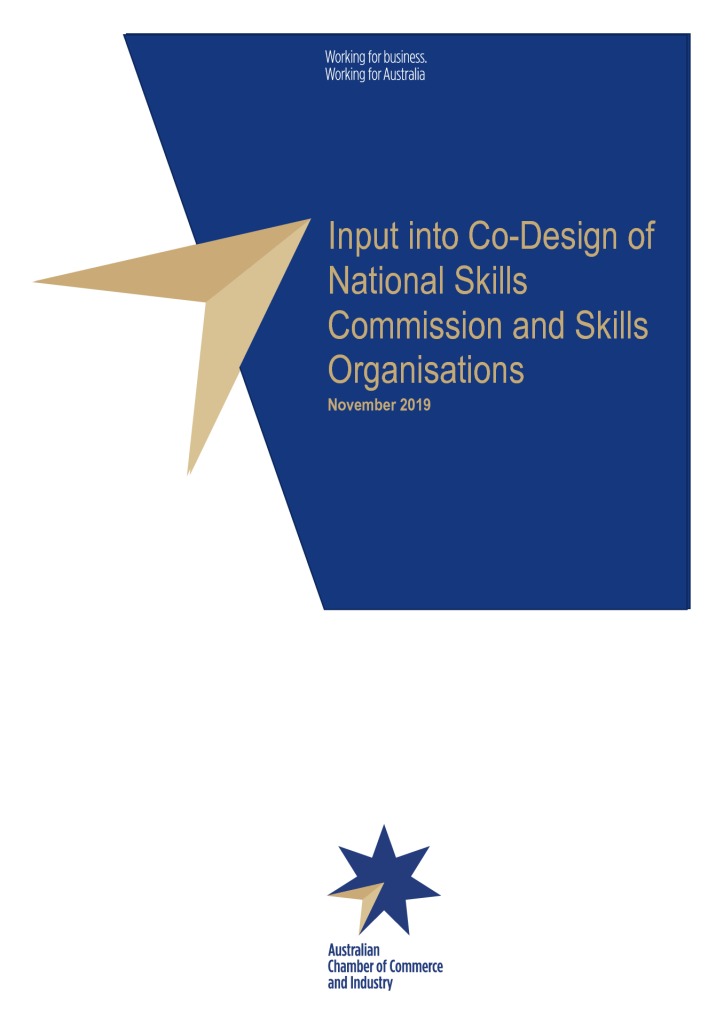Member Login
Employment
See below for submissions related to employment.
Employment White Paper Submission
The shortage of labour and skills is a major challenge facing Australian businesses today, placing immense strain on their operations and holding back productivity and economic growth.
Updating the Australian and New Zealand Standard Classification of Occupations
The Australian Chamber welcomes the Australian Bureau of Statistics work on reviewing how skills are reflected in the Australian and New Zealand Standard Classification of Occupations (ANZSCO).
Disability Employment Support Model Consultation
The Australian Chamber of Commerce and Industry (ACCI) welcomes the opportunity to provide a submission in response to the Consultation Paper, Shaping your new disability employment
support program.
Coal Industry Long Service Leave Review
ACCI lodged the below submission on Monday 12 July 2021 to the review of the Coal Industry portable long service leave scheme (Coal LSL), addressing various of the terms of reference announced by the Attorney General and Assistant Attorney in June 2021. The review raises considerations relevant not only to black coal businesses but also potentially other businesses that may periodically undertake work on black coal mine sites such as equipment servicing, construction and maintenance.
Australian Strategy for International Education 2021 – 2030 | Submission to the Department of Education, Skills and Employment
International Education is a very valuable service export industry to Australia. Australian education providers offer a range of services to international students including school education, vocational training, higher education and English language tuition. Pre-pandemic, the industry was worth $37.5 billion to the Australian economy (2019-20)1. Even in the midst of a pandemic, international education is Australia’s fourth largest export due to offshore enrolments and online study continuing in 2020-21. In 2018, the United States was the most popular study destination for international students while Australia was the third most popular after the United Kingdom2. However, as the world continues to move to a new normal, Australia needs to approach international education as it does other valuable service export industries and remove barriers to growth while supporting its transition to a new post pandemic trading environment. The coronavirus pandemic and subsequent travel ban enacted by the Australian Government has meant the international education sector is facing an unprecedented crisis.
University Research Commercialisation Scheme | Submission to the Department of Education, Skills and Employment | April 2021
The Australian Chamber of Commerce and Industry (ACCI) welcomes this opportunity to provide input to the Department of Education, Skills and Employment (DESE) on University Research Commercialisation (URC). ACCI has long been an advocate of industry collaboration with research and development (R&D) organisations, including universities. The DESE consultation paper rightly highlights the importance of research commercialisation to increase business productivity and create jobs in the economy. International experience demonstrates that R&D ecosystems can excel at attracting and integrating significant R&D investment and effort to achieve technical leadership and high levels of commercial value-add. The United States has done particularly well in this regard, with successful companies created on the back of R&D collaboration. There is significant opportunity in Australia to increase business productivity through innovation that arises from collaboration in research and development. Australia no doubt has world class universities producing research and centres of excellence. The main issue remains converting the R&D that comes out of universities into commercial success or even early stage R&D collaboration between universities and business. This submission will address issues three and four of the consultation paper as they are most relevant to business.
Economic Recovery Package (JobMaker Hiring Credit) Amendment Bill 2020 | Submission to the Economics Legislation Committee
The Australian Chamber of Commerce and Industry (ACCI) welcomes the opportunity to provide this submission in support of the Economic Recovery Package (JobMaker Hiring Credit) Amendment Bill 2020, which will facilitate the JobMaker Hiring Scheme.
As a key policy of the Federal Budget, the JobMaker Hiring Credit is a welcome, practical measure to help address rising youth unemployment which has been exacerbated by the COVID pandemic.
ACCI encourages Parliament to pass this Bill as soon as possible to ensure businesses can be assured of the scheme promised in the Budget and to encourage an increase in the hiring of young Australians.
Response to the Productivity Commission Interim Report on the National Agreement for Skills and Workforce Development
This response to the Interim Report on the National Agreement for Skills and Workforce Development (NASWD) encourages a focus on funding, including the importance of consistent real growth in the government investment in VET.
Submission to the Select Committee on Temporary Migration
This submission outlines the importance of a responsive temporary migration program, highlights the current shortcomings of the program and provides recommendations on how the system can be improved.
Review of Australian Apprenticeships National Skills Needs List Methodology Discussion Paper
The Australian Chamber of Commerce and Industry (ACCI) welcomes the opportunity to provide comment in response to the National Skills Needs List (NSNL) Methodology Discussion paper issued in December 2019. We sincerely appreciate that the Department has provided multiple opportunities to comment on the review of the NSNL.
Planning Australia’s 2020/21 Migration Program
This submission sets out the case in support for returning the permanent migration to the planning cap of 190,000 places. The Government’s move to reduce migration to solve our infrastructure shortfalls loses sight of the economic and fiscal benefits promoted by migration, and ultimately places unnecessary restrictions on Australia’s economic growth. The submission also makes the case that regardless of the size of the cap, the proportion of migrants that are employer sponsored should remain proportionally high and as accessible as possible for both regional and urban Australian businesses.
Submission of the Education Council Review into Senior Secondary Pathways
Support for our young Australians is going backwards. One of the most important priorities for any
society is to educate the next generation and provide them every opportunity to successfully
transition from school education into employment or further education.
The evidence indicates that in Australia we are not fulfilling this role as well as we could be. With a
youth unemployment rate three times higher than the unemployment rate for people aged 25 or
over, declining standards for literacy and numeracy, and an emphasis on higher education
pathways regardless of outcomes, there is much scope for improvement.
Submission on Input into the Co-Design of the National Skills Commission and Skills Organisations
The skills package announced by the Federal Government in the April 2019 Budget is a significant and welcome step along the path to improving the vocational education and training (VET) system. At the heart of the proposed new arrangements is the National Skills Commission. In acknowledgement of focus and progress, the Australian Chamber welcomed the Vision for VET that was agreed by COAG at its August 2019 meeting. It is important now that this vision be validated by consultation with industry, and that industry be involved in the drafting of a roadmap to reform. One of the key omissions from the Vision statement is a commitment by all jurisdictions to real funding growth for VET and consistency not just between jurisdictions but within them. Other sectors in education take funding growth for granted and focus their advocacy on how big that growth should be. But this situation has eluded VET, which instead has seen funding rise and fall more than once at both State and Federal level over the last two.

